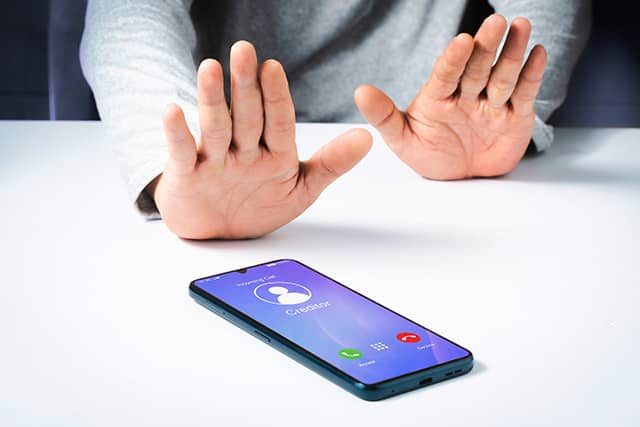
How Many Times a Day Can a Creditor Call You Before It Becomes Harassment?
Are you tired of your phone constantly ringing with calls from creditors? Do you feel overwhelmed and harassed by the sheer volume of these calls? If you’re struggling with debt and being bombarded by creditor calls, you might be wondering: just how many times a day can a creditor call you before it crosses the line into harassment?
As Mississippi consumer protection lawyers, we know how stressful and frustrating it can be to feel like you’re being hounded by creditors. You might be tempted to ignore the calls altogether, but that’s not always the best solution. It’s important to understand your rights as a consumer and know when creditors are overstepping their bounds.
The Fair Debt Collection Practices Act (FDCPA)
The FDCPA is a federal law that serves as the foundation for consumer protection against abusive debt collection practices.
It applies to third-party debt collectors and establishes clear guidelines on how and when they can communicate with consumers.
While the FDCPA does not set a specific limit on the number of calls a creditor can make daily, it prohibits calls intended to annoy, abuse, or harass the consumer.
Your Rights Under FDCPA
Some key provisions of the FDCPA related to call frequency include:
- Prohibiting calls before 8 a.m. or after 9 p.m. (local time for the consumer) unless the consumer agrees otherwise.
- Prohibiting debt collectors from harassing, oppressing, or abusing any person in connection with the collection of a debt (15 USC § 1692d).
- Restricting calls to the consumer’s workplace if the collector knows or has reason to know that the employer prohibits such calls.
- Prohibiting debt collectors from using any false, deceptive, or misleading representations or means to collect any debt (15 USC § 1692e).
- Requiring collectors to cease communication if the consumer notifies them in writing that they refuse to pay the debt or wish the collector to stop contacting them (with some exceptions).
- Prohibiting debt collectors from using unfair or unconscionable means to collect or attempt to collect any debt (15 USC § 1692f).
Mississippi residents can protect their rights against creditor harassment by applying the above FDCPA rules when debt collector calls get out of control.
Mississippi State Laws on Creditor Communication
Unlike other states, Mississippi does not have specific statutes that directly address creditor communication or debt collection practices.
While Mississippi may have general consumer protection rules, such as the Consumer Protection Code, these laws do not specifically address debt collection practices or creditor communication.
The primary legal protection for Mississippi consumers against unfair, deceptive, or abusive debt collection practices comes from the federal Fair Debt Collection Practices Act (FDCPA).
Identifying Creditor Harassment: When Calls Cross the Line
Creditor harassment can take many forms. One of the most common is excessive phone calls.
While the FDCPA and Mississippi law don’t set a specific limit on the number of calls per day, there are clear signs that a creditor’s behavior has crossed the line into harassment:
- Multiple calls per day, especially after you’ve requested that the calls stop.
- Calls at unreasonable hours, such as early in the morning or late at night.
- Calls to your workplace after you’ve informed the creditor that your employer prohibits such calls.
- Calls to friends, family, or neighbors in an attempt to pressure or embarrass you.
- The use of threatening, profane, or abusive language during calls.
You should document all calls that you believe are creditor harassment.
Keep a detailed log of the date, time, and content of each communication, as you will need this information if you decide to take legal action against the creditor.
How to Put a Stop to Harassing Creditor Calls
When creditor calls become excessive or harassing, you have the right to take action to protect yourself.
Below, we’ve listed some steps to take that should stop the calls:
Communicate Your Preferences Clearly
Inform the creditor in writing that you wish for the calls to stop. Send the letter via certified mail and keep a copy for your records.
Send a Formal Cease and Desist Letter
Have a Mississippi consumer protection attorney send a more formal cease and desist letter demanding that the creditor stop contacting you if the calls continue despite your initial request.
Consider Filing a Lawsuit
If the harassment persists, seek counsel from your consumer protection attorney to understand your rights and take legal action if necessary.
Remember, you have the right to be free from harassing and abusive creditor calls, and legal remedies are available when a creditor violates your rights.
Taking Legal Action Against Creditor Harassment
If a creditor continues to engage in harassing behavior despite your efforts to stop the calls, you may need to escalate the situation by taking the complaint to court.
In Mississippi, you have several legal options:
- File complaints with the Federal Trade Commission (FTC) and the Consumer Financial Protection Bureau (CFPB), agencies that can investigate and take action against creditors who violate the FDCPA
- Sue the creditor in a Mississippi court for FDCPA violations, asking for actual damages, statutory damages, and attorney’s fees
- Seek injunctive relief (court desist order) to stop the harassing calls and prevent future violations.
Statute of limitations considerations
It’s also important to note that there is a deadline for debt collection lawsuits in Mississippi.
For most debts, the statute of limitations is three years from the date of the last payment, meaning neither you nor the creditor can sue regarding the debt after this period,
However, the creditor may still attempt to collect through other means.
Regain Control and Find a Path Forward
Dealing with creditor harassment is sometimes emotionally draining. But always remember that you have rights and options.
Understand the legal limits on which a creditor may call you, recognize harassment signs, and assert your rights to protect yourself.
If you believe a creditor is harassing you, contact Ware Law Firm in Mississippi for a free case review. Our knowledgeable consumer protection attorneys can communicate with creditors on your behalf and take legal action if necessary.




